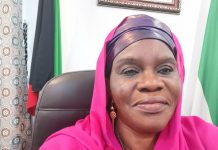During your tenure in Kuwait what is your opinion about women’s empowerment in society
Kuwaiti women have long been recognized as pioneers with a voice in social, political, intellectual, and cultural fields, throughout the country’s history. The first Arab woman president of a university was from Kuwait at the Kuwait University. Due to recent efforts and success in appointing female judges for the first time in Kuwait’s history, more women are pursuing careers as public prosecutors and more women lawyers are emerging. All these steps that Kuwait has taken to support and empower women in a variety of fields as part of its implementation of the UN’s Sustainable Development Goal 5. Actually, Economic growth in Kuwait cannot be achieved without the full economic empowerment of women. In addition, Kuwait has been prioritizing women’s economic empowerment in other key policy instruments, such as the new national plan for Kuwait called Vision 2035/New Kuwait. Kuwait’s “New Kuwait” development strategy aims to transform the country into a regional financial, cultural, and institutional pioneer by 2035.
How have you found women in Kuwait during your interaction with them in terms of their emancipation, education and outlook?
In my perspective, women in Kuwait nowadays are among the most emancipated in the Middle East, as I can see. Women form over 46 percent of those employed in the country and are seen in every sector of the economy and play an important role in the political and administrative life of the country. Employment rate of women in Kuwait is the highest in the MENA region and Kuwait is also ranked top among all Arab countries in the Human Development Report’s Gender Inequality Index. I can notice that it was often Kuwaiti women themselves who pushed for educational advances and opportunities, which reflects their advanced outlook in education and their ambitions toward the upturn. Although the education of women in Kuwait started later than in other Arab countries, it’s clear that it moved ahead of education in these countries.
What is your take on Gender Equality today for a Sustainable Tomorrow and #BreakTheBias?
The theme of International Women’s Day 2022 is to recognize the accomplishments of women and girls all throughout the world. Women have been at the forefront of climate change adaptation, mitigation, and response efforts to create a more sustainable future for all. This is a day to dream and fight toward a future free of gender bias, stereotypes, and discrimination that can rob women of their potential and creativity. This is a day to work toward a world that is inclusive, fair, and appreciates diversity. The United Nations Sustainable Development Goals recognize that women play a vital role in ensuring a sustainable future for our globe. Women must have equal access to education and health care, equal compensation for equal work, equal access to all professional opportunities, and equal political influence and voice in society in order to make the greatest possible contribution to this quest. The many forms of discrimination that women suffer are rooted in gender biases and stereotypes. This must be identified, called for, and rejected if women everywhere are to be able to contribute as full and equal partners in shaping our global future. This year theme #BreakTheBias challenges us to envisage a society free of bias, stereotypes, and discrimination, a world of gender equality. A world that is diverse, equitable, and inclusive. A world that respects and appreciates diversity. Together, we can achieve gender equality and #BreakTheBias.
In your career have you faced discrimination or hurdles being a woman?
Women are frequently discriminated against in the workplace, and I am not an exception. Discrimination against women is common since they are perceived to be inferior in terms of education, knowledge, and skills. Women who are labeled weak are always subjected to horrific treatment. Many women are subjected to physical and psychological violence, which causes them to lose their ability to cope and, as a result, many of them to stop working. However, I believe that stronger hurdles require more efforts to conquer.
Women are increasingly participating in leadership roles do you see this trend rising and what do you feel should be done so that their particpation can be increased?
Yes, I do see this is an increasing trend. However, there are various things that must be done to increase women’s leadership, the most basic of which is to raise women’s understanding about gender equality so that they can develop their potential, so that women can be autonomous and participate in development. Following that, there will be an effort to strengthen women’s ability to participate in development programs as active participants (subjects), so that they are not only objects of development, as has been the case thus far. Furthermore, improving the abilities of women in leadership to strengthen their negotiating power and involvement in all developments, both as planners, implementers, and monitors and evaluators.

















